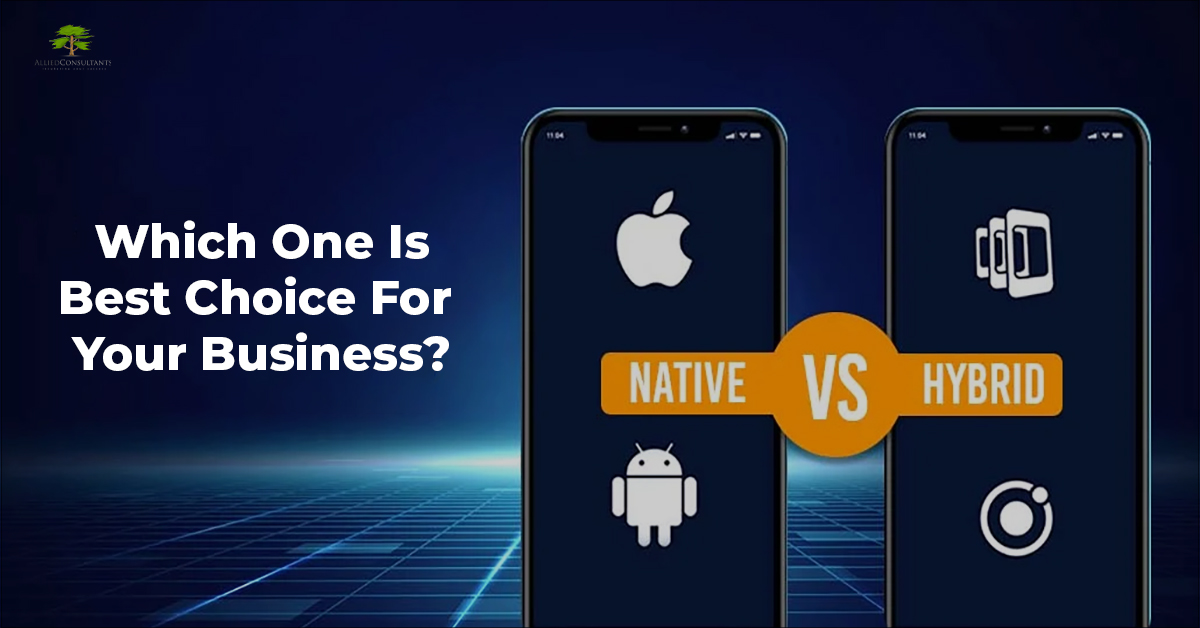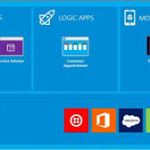Native vs Hybrid Apps—Which One Is Best Choice For Your Business?
I assume you’ve come across many discussions about the ongoing debate between mobile and native web applications. This debate is likely to grow, especially with Android’s increasing market share.
However, this debate is more complex than it may seem at first. The arguments often rely on statistics related to new subscribers rather than the total number of device owners. Additionally, these stats tend to focus mainly on high-end smartphones, as seen in the July 2011 comScore U.S. Mobile Subscriber Market Share Report. This can give a somewhat biased view of the market, making it seem like it’s primarily divided between Google and Apple, which may not reflect the complete reality of mobile platforms’ diversity.
When you’re thinking about creating an app, whether it’s for e-commerce, healthcare, banking, or tailored to your business needs, your first step should be to understand the various mobile frameworks available. There are several options out there, including native apps, web apps, and hybrid apps. It’s important to realize that not all apps are the same, and they provide different user experiences.
Some apps need an internet connection, while others don’t. Do you require access to specific device features? What’s your target launch time frame? We’ll address all your questions about native apps, web apps, and hybrid apps. So, without further delay, let’s get right into it!
Native App
Native apps, created using specific programming languages like Objective-C for iOS or Java for Android, are purpose-built for specific operating systems or devices. This means that if you make an app for iPhone, it will exclusively run on iPhones. Similarly, if you develop an app for the Android platform, it will only function on Android devices. These mobile applications are fast, dependable, and robust, but they are bound to a particular mobile platform. This implies that you’ll need to replicate them using the appropriate programming language if you want to target a different mobile platform. Nearly all games are native apps.
| Pros of Native Apps | Cons of Native Apps |
| Native apps are optimized | Developing native apps for multiple platforms (iOS, Android, etc.) can be expensive due to separate code bases. |
| Faster and smoother user experiences | Building separate native apps for different platforms takes more time compared to a single cross-platform solution. |
| Native apps can fully utilize device features like cameras, GPS, and sensors. | Native apps are platform-specific, limiting their reach to users on a particular OS (iOS or Android). |
| seamless and polished user experience with smooth animations and consistent design. | Developers may need to learn platform-specific languages and tools for each native app they create. |
You can easily see the advantages and disadvantages of native apps. It’s true that it can be costly and challenging to hire a team of developers who can tackle such a project. Sounds familiar? Don’t worry!
Allied Consultants, a reputable software development company has all the resources necessary for the successful development of a native app. We employ the latest AI and machine learning technologies to create a native app tailored to your business’s specific needs and requirements.
Web Apps
Web apps, often called mobile web apps, are responsive websites that you can open on your mobile phone or tablet using a web browser. A well-known example of a web app is Google Docs. What makes them attractive to both businesses and users is that you don’t have to download these apps and take up space on your phone. Plus, they work smoothly on various screen sizes and electronic devices.
Now, let’s explore the benefits and advantages of web applications to help you grasp their fantastic features and opportunities.
| Pros of Web Apps | Cons of Web Apps |
| Web apps work on various devices and operating systems with ease. | Web apps often require an internet connection, making them less usable when offline. |
| Users can access the web apps directly via a web browser without the need to download and install them. | Web apps have restricted access to device features like cameras and GPS compared to native apps. |
| Web apps can be updated instantly, ensuring users have the latest version. | Web apps don’t typically appear in app stores, making it harder to reach users who rely on app marketplaces. Web apps may have lower user engagement compared to native apps due to less integration with the device. |
| Developing web apps can be more budget-friendly as you can use a single codebase. | Ensuring compatibility with various web browsers can be challenging, leading to inconsistent experiences. |
| —————————- | Web apps may not perform as smoothly as native apps, especially for graphics-intensive tasks. |
Hybrid Apps
Hybrid apps, also known as hybrid mobile apps, blend the strengths of both native apps and web apps. This unique quality enables developers to create apps that work on all kinds of devices and operating systems. However, achieving success in building hybrid apps requires a skilled and experienced team, as these apps rely on technologies like HTML, CSS, and JavaScript.
| Pros of Hybrid Apps | Cons of Hybrid Apps |
| Deployment of web apps on different platform. | Limited performance for resource-intensive tasks. |
| Budget-friendly app development | Limited access to the features of the device |
| Faster app development due to a common codebase | Reliance on third-party frameworks like Flutter, React Native, etc. |
| Easy maintenance due to a common codebase | Provision of the same user experience on multiple channels is a challenging task |
| Provision of the same user experience on multiple channels is a challenging task | —————————— |
| Offers offline access to some functions | —————————— |
Which App Is Best For Your Business?
If you are still confused about which is the best application among these native, web, and hybrid applications, have a look at the table below. It shows you the exact differences between these applications and will surely help you make a smart and educated decision.
| Native Apps | Web Apps | Hybrid Apps | |
| High Performance | ✔ | ✖ | ✔ |
| Platform-specific Features | ✔ | ✖ | ✔ |
| Offline Functionality | ✔ | ✖ | ✔ |
| Cross-Platform Development | ✖ | ✔ | ✔ |
| App Store Presence | ✔ | ✖ | ✔ |
| Cost-Efficiency | ✖ | ✔ | ✔ |
| Quick Updates | ✖ | ✔ | ✔ |
Now, you should have a good grasp of native apps, web apps, and hybrid apps, along with their differences. So, the choice is clear. If you have a substantial budget and want to harness all the features mentioned, hybrid apps are likely your best bet. However, we’re not suggesting that you should rule out native apps and web apps entirely. The ultimate decision depends on your budget and business requirements; each type of app comes with its own set of advantages and limitations.
If you’ve decided to develop any of these three types of apps, Allied Consultants is here to help you. Our team has a strong track record of delivering App Development Services worldwide. Share your business’s specifics with our experts, and let us create an app that can elevate your business to the next level.





![Introduction to ASP.Net: Gateway to the professional web development [Part 1]](https://alliedc.com/wp-content/uploads/2015/08/ASP-Net-150x150.jpg)

